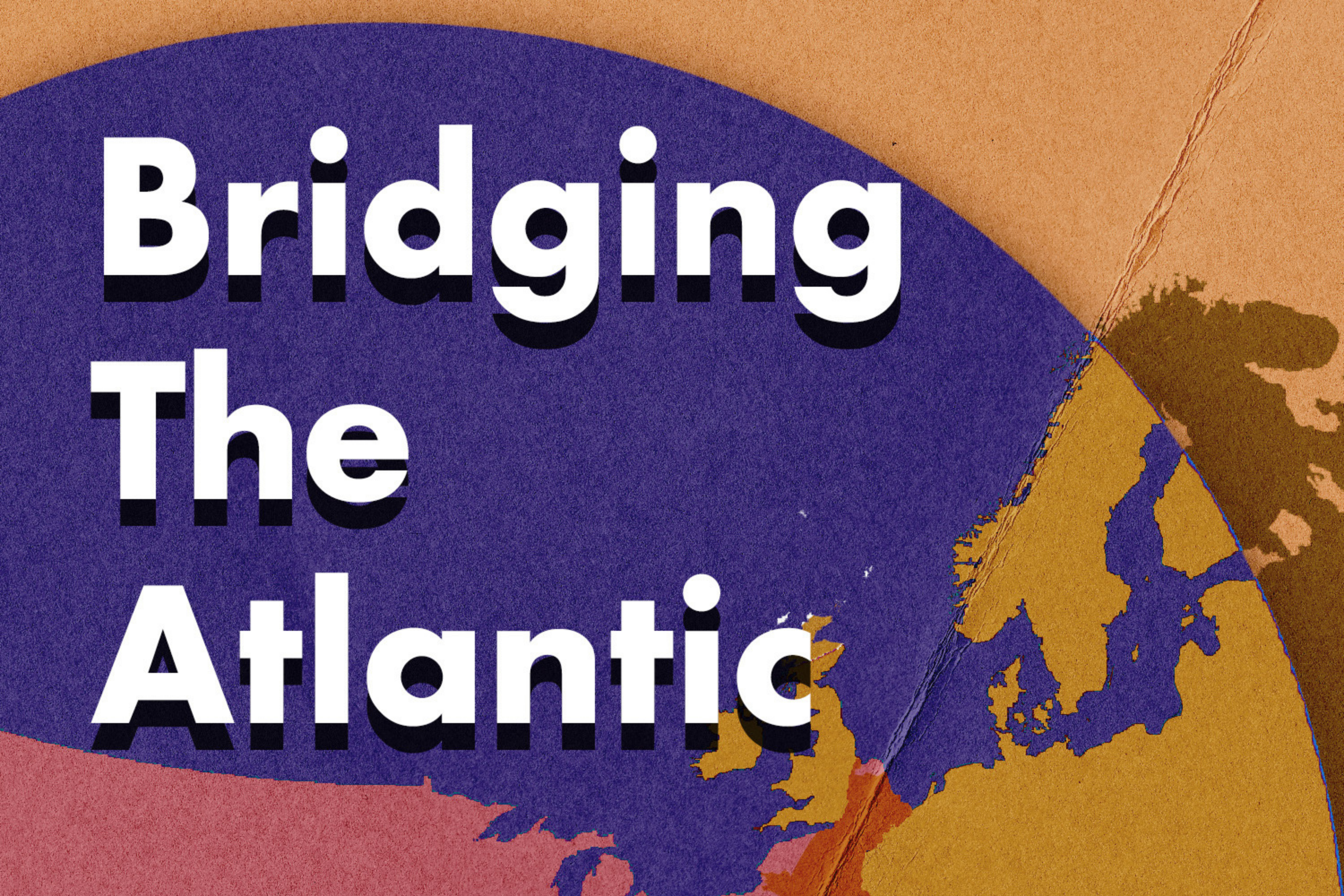Bridging the Atlantic
Transatlantic Relations in the 21st Century
Bridging the Atlantic is a 6-part miniseries, created with Are We Europe, that will take stock of transatlantic relations today and examine it beyond the usual touchstones. After a tumultuous four years with the Trump administration, many following the transatlantic relationship are eager to understand how the transatlantic relationship can bounce back and become more resilient in the future. But a reset is perhaps not the right goal.
In the 21st century, people on both sides of the Atlantic are no longer satisfied with “back to normal” and want more. Through interviews with experts on various aspects of the transatlantic relationship, this podcast will pit our understanding of transatlantic relations over the last several years against ideas from people re-imagining what the transatlantic relationship can and should be. The outcome, we hope, is a clearer sense of the alliance that shapes our lives in visible and invisible ways.


Episode 6 | The Near Future of Transatlantic Relations
In the European Union, Spain took over the presidency of the Council of the EU through the end of this year, and in 2024, both sides of the Atlantic will be shaped by elections. First, European elections will bring changes to the European Parliament and European Commission, and then all eyes will be on the US presidential election. I speak with experts on what to expect in the near future for the transatlantic relationship.

Episode 5 | Transatlantic Generational Divide
In this episode, we dive into generational divides on both sides of the Atlantic and discuss why different generations have different political mindsets. Millennials and Gen Z already exert their political influence through voting—and in some cases as legislators or even heads of government—but for the most part the transatlantic political agenda is set by older generations.

Episode 4 | Change Beyond Climate
Earlier this year, the United Nations’ Intergovernmental Panel on Climate Change (IPCC) announced that keeping global warming below 1.5 degrees Celsius was no longer feasible. A summer of wildfires and droughts from the west coast of the United States to southern Spain kept the impact of climate change in the transatlantic headlines. Yet somehow, it seemed like there were always more salient political issues stealing attention away from climate action.

Episode 3 | Transatlantic Security
Vladimir Putin has brought war back to Europe, presenting transatlantic security with the massive challenge of supporting Ukraine and shoring up their own defenses. As the response to the war in Ukraine has shown, NATO and the EU work well together when the need arises, but questions remain about how to enhance EU security while strengthening NATO.

Episode 2 | Online Platform Regulation, Content Moderation, & Free Speech
Disagreement over free speech online has been a thorn in the side of a common transatlantic approach to dealing with internet platform giants wielding huge influence over our online communication. Over time, the divide narrowed, but more importantly, policy approaches became more sophisticated. Our guests explain how, in the case of platform regulation, the United States and the European Union have converged despite different perspectives.

Episode 1 | What Are Transatlantic Relations Today?
This episode reaches back into the past to one of the most important artifacts of transatlantic history. Then, Rachel Rizzo, nonresident senior fellow at the Atlantic Council's Europe Center, explains the foundations of the Euro-Atlantic alliance today. And finally, former NPR foreign correspondent Soraya Sarhaddi Nelson reflects on her experience as a journalist linking Germany and the United States and talks about the importance of finding common ground over disagreement.